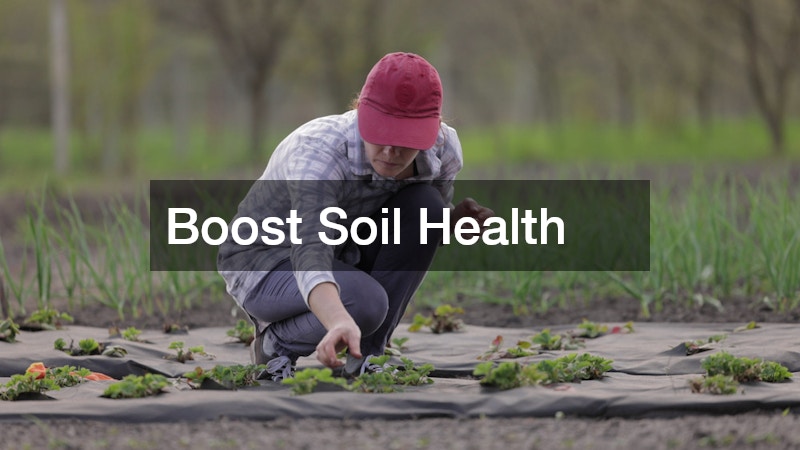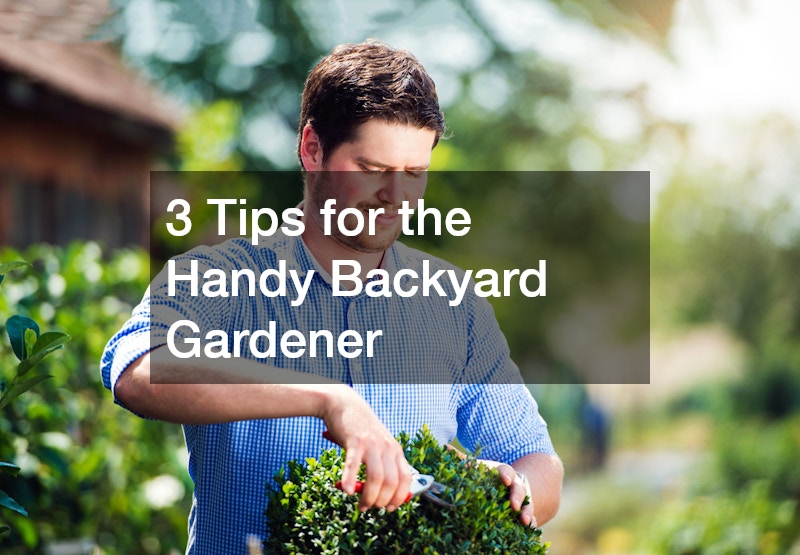A backyard garden can be a source of pride, relaxation and a little bit of adventure. For the handy backyard gardener, creating a vibrant and healthy garden isn’t just about planting seeds and watering them. It’s about understanding your space, choosing the right tools and making decisions that help your plants thrive. Whether you are tending a small urban patch or a sprawling suburban garden, the principles remain the same. A little knowledge, preparation and consistent care can turn an ordinary backyard into a lush, inviting retreat.
Many people find joy in getting their hands dirty, exploring new gardening techniques and experimenting with different plants. The process of gardening can be both rewarding and therapeutic. You get to watch your efforts grow into something tangible, whether it’s a flourishing lawn, colourful flower beds or a productive vegetable patch. For backyard gardeners, knowing how to balance the practical aspects of gardening with a bit of creativity can make all the difference. This guide offers three key tips that can help you maximise your garden’s potential while keeping the work enjoyable and manageable.
Use the Right Tools

Choosing the right tools is an essential step for any backyard gardener. Tools are the bridge between your intentions and the results you want in your garden. A good set of basic hand tools, such as spades, rakes and pruners, makes light work of many gardening tasks. But sometimes, larger equipment like a tractor can transform the way you maintain your lawn and garden beds. The right tool saves time, reduces physical strain and can improve the overall appearance of your garden. Investing in quality tools that suit your garden’s size and layout ensures your work is both effective and enjoyable.
For example, if you are managing a larger backyard, using a tractor can simplify tasks such as mowing, turning soil or hauling compost. It allows you to cover more ground efficiently and reduces the manual effort required for heavy-duty chores. Even smaller backyard gardeners can benefit from attachments that help with aerating soil or collecting garden waste. Using equipment correctly not only enhances your productivity but also extends the lifespan of the tools, meaning you spend less time repairing or replacing them.
Find Quality Support

Knowing where to find quality supplies is a cornerstone of successful gardening. A backyard gardener benefits from sourcing materials that are reliable, sustainable and suited to the local climate. A local turf supplier, for instance, can provide grass varieties that establish quickly, resist common pests and thrive in your area’s conditions. Local suppliers often offer advice based on their experience and knowledge of the region, which can be invaluable when making planting or lawn care decisions. Supporting local businesses also ensures you receive fresher products and personalised service.
When you consult a local turf supplier, you can ask about soil preparation, fertilisation schedules and maintenance tips tailored to your garden. They can help you select turf that matches the sunlight and water availability in your yard. Using the guidance they offer, backyard gardeners can create lawns that remain green and resilient throughout the seasons. Engaging with knowledgeable suppliers provides more than just products—it gives you access to advice that can save time and improve the long-term success of your garden.
Boost Soil Health

Healthy soil is the foundation of a thriving garden. Without it, plants struggle to grow and lawns may appear patchy. Mulch is an excellent tool for improving soil health and retaining moisture in the garden. It protects roots from temperature extremes, reduces the growth of weeds and gradually adds nutrients to the soil as it decomposes. A backyard gardener who prioritises soil health will see better results from all planting efforts and will spend less time addressing problems caused by poor soil conditions.
Applying mulch effectively requires some planning. Spread it evenly around flower beds, shrubs and trees, ensuring it doesn’t touch the stems directly to prevent rot. Organic mulch such as wood chips, straw or composted leaves can enrich the soil over time, while inorganic options like pebbles help control erosion and maintain moisture. Mulching not only protects plants but also improves the texture and fertility of the soil, encouraging strong root development and reducing the need for frequent watering. Regularly refreshing your mulch layer keeps the garden looking tidy and maximises its benefits.
Gardening is a blend of skill, knowledge and enjoyment. By using the right tools, sourcing quality supplies and caring for soil health, backyard gardeners can transform their outdoor spaces into flourishing, resilient gardens. Each tip supports a practical and sustainable approach to gardening, allowing you to get the most out of your efforts. With these strategies, maintaining a beautiful garden becomes more manageable and rewarding. For any backyard gardener, these steps provide a foundation for success, ensuring a productive and enjoyable experience season after season.



